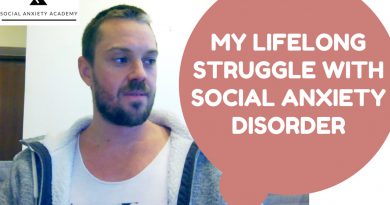How to Help Someone with Depression (32 Tips for when they don't want to talk) Depression Skills #2
Depression can be debilitating, and when your friend, spouse, child or someone else you care about has depression- you want to know how to help them. But what if they don’t want to talk about it? You want to know how to help them anyway!
In this video I teach 32 ways to help someone with depression that don’t require you to talk about depression! These skills are essential for friends and parents of someone who is depressed.
It’s common for people to not want to talk about their Depression or not know what to say…but Fear Not! In Chapter 47 from my course “How to Help” I share 32 ways to help someone with Depression or Anxiety when they don’t want to talk about it.
Sign up for my Newsletter: www.therapynutshell.com
My Intensive Mental Health Courses are now on Teachable! Use the code NUTSHELL for 25% off!
How to Help Course: Practical Skills to help Loved ones with Mental Illness: https://therapyinanutshell.teachable.com/p/practical-psychotherapy-skills
Change your Brain: Mental Health and Neuroplasticity Course: https://therapyinanutshell.teachable.com/p/change-your-brain
Coping Skills and Self-Care for Mental Health Course: https://therapyinanutshell.teachable.com/p/coping-skills-and-self-care-for-mental-health
FREE! Grounding Skills Course: https://therapyinanutshell.teachable.com/p/grounding-skills-for-anxiety-stress-and-ptsd
Check Out My Favorite Books for Mental Health:
https://www.therapynutshell.com/post/my-favorite-self-help-books
Music licensed from www.Bensound.com or Artlist.io
Images from Freepik.com (premium license), Pixabay, or Wikimedia commons
Therapy in a Nutshell, and the information provided by Emma McAdam, is solely intended for informational and entertainment purposes and is not a substitute for advice, diagnosis, or treatment regarding medical or mental health conditions. Although Emma McAdam is a licensed marriage and family therapist, the views expressed on this site or any related content should not be taken for medical or psychiatric advice. Always consult your physician before making any decisions related to your physical or mental health.
If you are in crisis please contact the National Suicide Prevention Hotline at: https://suicidepreventionlifeline.org/ or 1-800-273-TALK (8255), or your local emergency services.





